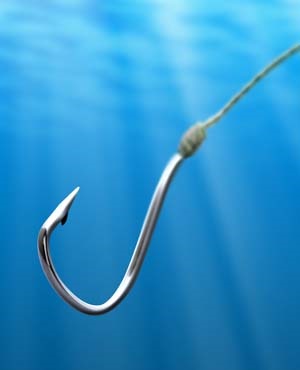Who doesn’t love salmon roses and a glass of wine, or a delicious battered hake and chips? But without environmental precautions to stem the tide of unrelenting fishing these household dishes may soon become just a story to our grandchildren.
Fishers remove more than 77 billion kilograms of wildlife from the sea each year and 87% of the world´s fish stocks are either overexploited or fully fished (2012 United Nation’s Food and Agricultural Organisation report). The state of the ocean’s fish stocks is a worldwide concern and scientists fear that continuing to fish at this rate may soon result in a collapse of the world’s fisheries.
Overexploited and depleted seafood also means that livelihoods of people, as well as the economy are put in danger. According to WWF-SASSI, South Africa faces an increase in the demand of fish products that is larger than ever and to meet the need many species are exploited, overfished or have collapsed. Overfishing is taking wildlife from the sea faster than populations can reproduce. The blue fin tuna is a prime example. One of the largest and fastest fish it is known for its delicious meat, which is often enjoyed raw, as sushi. With the increased popularity of sushi worldwide the demand for this particular fish has resulted in very high prices and overfishing, threatening the population. Today’s spawning population of blue fin tuna is estimated at 21 to 29% of the population in 1970.
Fishing stock depletion is not only a South African problem, but an international concern and often resulting in illegal fishing in protected areas or the fishing zones of another country to meet another’s demands. Illegal long-line commercial boats have huge socioeconomic impacts on the local fishery industry as well as the ecology of the oceanic ecosystem. In 2009 it was reported by the Institute for Security Studies that illegal fishing in South African waters was costing the country about R6-billiion a year‚ mostly related to the deep-sea trawl of the hake fishing industry, and abalone and lobster poaching at a loss of R4 billion annually. Serge Raemaekers, a University of Cape Town academic and researcher, mad a conservative estimate in 2014 that about 3,000 tonnes of the poached fish was being smuggled illegally.
Another issue is Bycatch, or the accidental capture of non-target species, which are then thrown back overboard even though they are dead or dying. Purse seining, longlining, and many other types of fishing can also result in a lot of bycatch. Longlines intended to catch blue fin tuna, for instance, can ensnare birds, sea turtles, and other fish such as swordfish. Commercial trawling over a coral reef, has done permanent damage to marine habitats which disrupts the eco-system and reduces the amount of shelter for fish. However modern trawling equipment can be modified to reduce the impact on the environment. Rubber wheels called ‘rock hoppers’ on the nets allow the net to skip over the seafloor’s surface; this makes sure that the amount of time that the equipment touches the sea floor is diminished.
Choosing to buy sustainable fishing products is one way to make sure that fisheries employ ethical methods, such as rock hoppers, in order to conserve the marine life and ensure our children will also be enjoying fresh fish and seafood from the ocean. Hake trawl fishery has also implemented sustainable practises by only allowing fishing in zones that have been delimited for trawling, and on virgin ground no fishing is allowed to protect the established sensitive habitats.
Sustainable fishing is essentially fishing done in a way that promotes a healthy relationship between consumers and the ocean. This can be achieved through implementing individual fishing quotas which prevent overfishing, creating protected areas for endangered fish, restoring fisheries that have collapsed and educating both the stakeholders and the public about the current issues facing the fishing industry and how to choose relevant products.
As consumers, we can use our buying power to choose seafood from well-managed, sustainable fisheries. The gold standard of eco-labelling is MSC (Marine Stewardship Council) certification which works to make sure that fisheries are constantly improving to promote sustainable fishing. In order to receive MSC standard, fisheries must make sure that there are sustainable fish stocks, that their fishing activity is at a level that it can continue indefinitely, that fishing operations are managed to maintain the structure, productivity, function and diversity of the ecosystem, and that the fishery complies with relevant laws with records to marine life.
Not only is buying from MSC certified fisheries important but choosing suppliers with a commitment to SASSI green listed fish ensures your purchasing decisions are the right ones in creating a sustainable food resource. Woolworths first compiled a policy for sustainable fish and seafood in 2007and became the first retailer in South Africa to sign the WWF-SASSI Retail Charter in 2008. Having accomplished many of their 2015 Good Business Journey seafood commitments they have set themselves even higher targets for 2020, including the commitment that all species from aquaculture operations will be WWF-SASSI Green-listed, or where applicable, from aquaculture operations that are ASC (or equivalent) certified, or from aquaculture operations that are engaged in a credible, time bound Improvement Project.
Woolworths talks about sustainable fishing with Grey’s Marine, and their commitment to the community:




 Publications
Publications
 Partners
Partners












